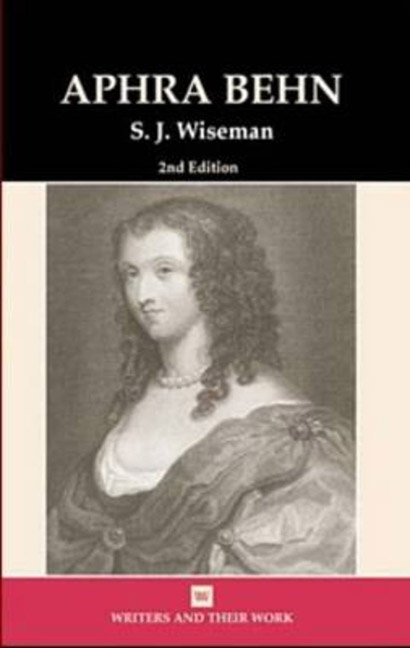7 - Conclusion
Summary
This book has traced the patterns of desire, storytelling, and political analysis through a wide range of Behn's texts written throughout her career. As the Introduction suggested, Behn is in many ways a protean writer, consistently responsive not only to politics but also to market concerns, always alert to the commercial value of a text. She was also a writer with distinctive preoccupations - politics, desire, survival (in both emotional and economic terms). As such, her writings require many different frames of reference.
The close attention paid to poetry, theatre, and prose has shown Behn to be generically adaptable and adroit, always responding rapidly to the challenges of a particular medium. The commercial production of the texts means not only that her writing covers a huge span, from royal panegyric to political ballad, from epilogue to tragedy, from short fiction to blockbuster roman à clef, but that it constantly engages with issues of interest to its public. This connection with a public sphere which was simultaneously political and commercial, using pleasure to sell (literally) political opinion produces one of the most exciting aspects of Behn's writing - a continuing and contradictory engagement with the ideologies produced by her society.
Indeed, as these short readings may have indicated, a ‘Behn' text both offers a complex and pleasurable manipulation of its audience and articulates contemporary ideological positions. At moments her texts comment upon these positions. But their commercial inclusiveness means that, amongst the paradoxes, many issues and positions contradictory to dominant codes are voiced, if not endorsed. As caricatures, Commonwealthsmen and republicans not only are given a voice (albeit one framed by satire) but, set in contrast to varying sorts of royalists, provide the pleasure of the comedies. The poems suggest that feminine desire is destructive, but elsewhere suggest that it is self-originating - always a desire to desire, and polymorphously perverse in the fantasies it creates.
Thus, Behn's texts, although introduced virtually alone here, invite comparative and contextual analysis as part of the cultural and political public sphere of late-seventeenth-century England. In Oroonoko we see Behn right at the end of her career blending old concerns with experimental narrative genre and narration, and taking them in a new - and, crucially, marketable - direction.
- Type
- Chapter
- Information
- Aphra Behn , pp. 116 - 117Publisher: Liverpool University PressPrint publication year: 2006

